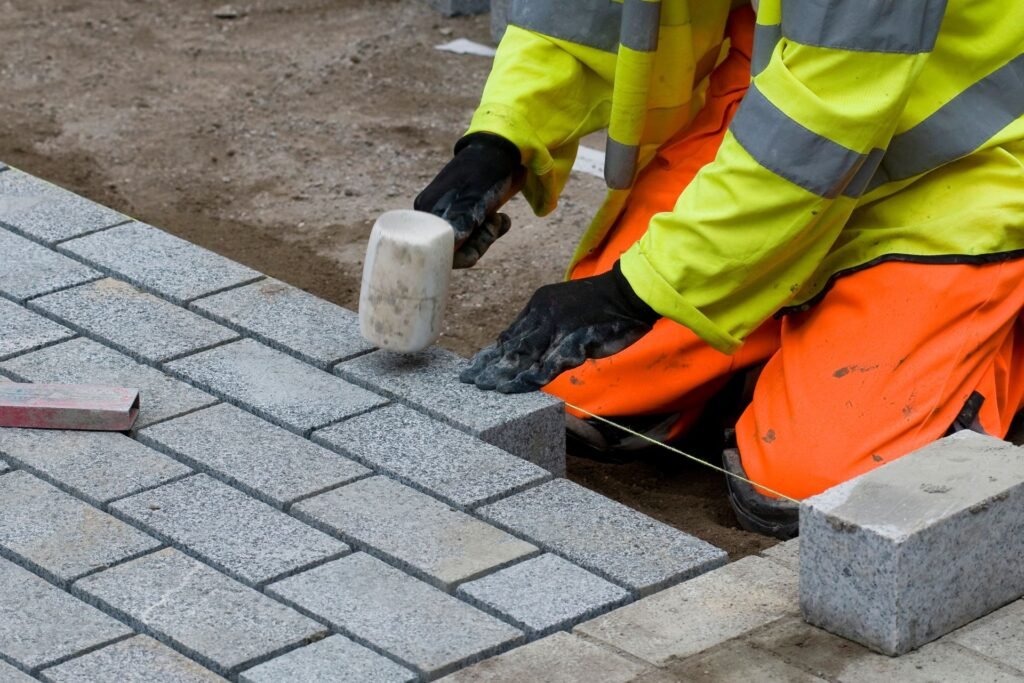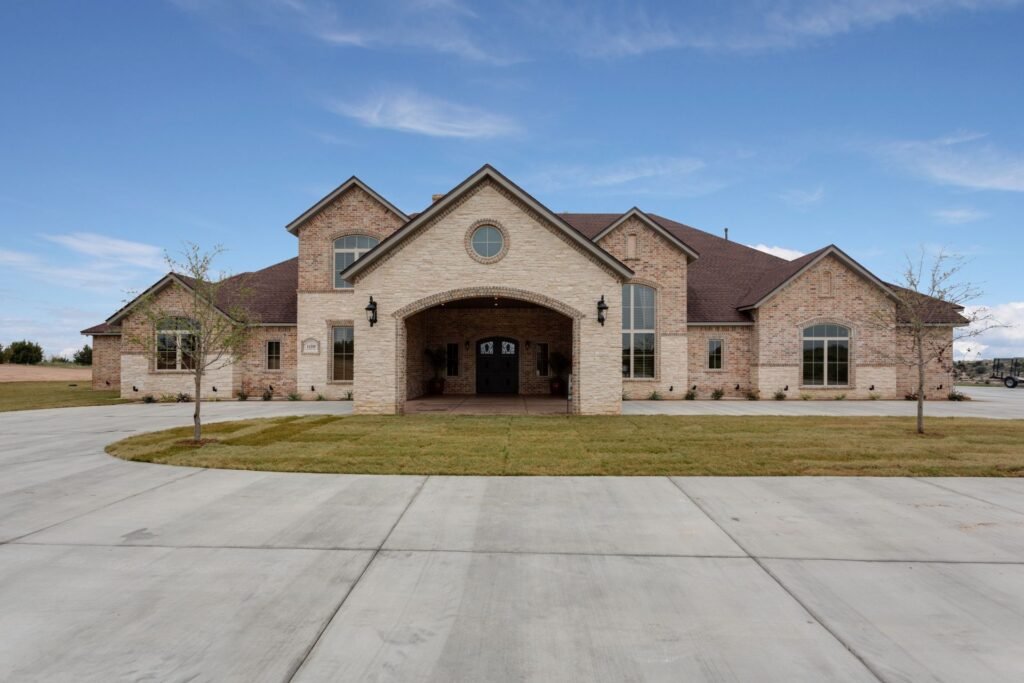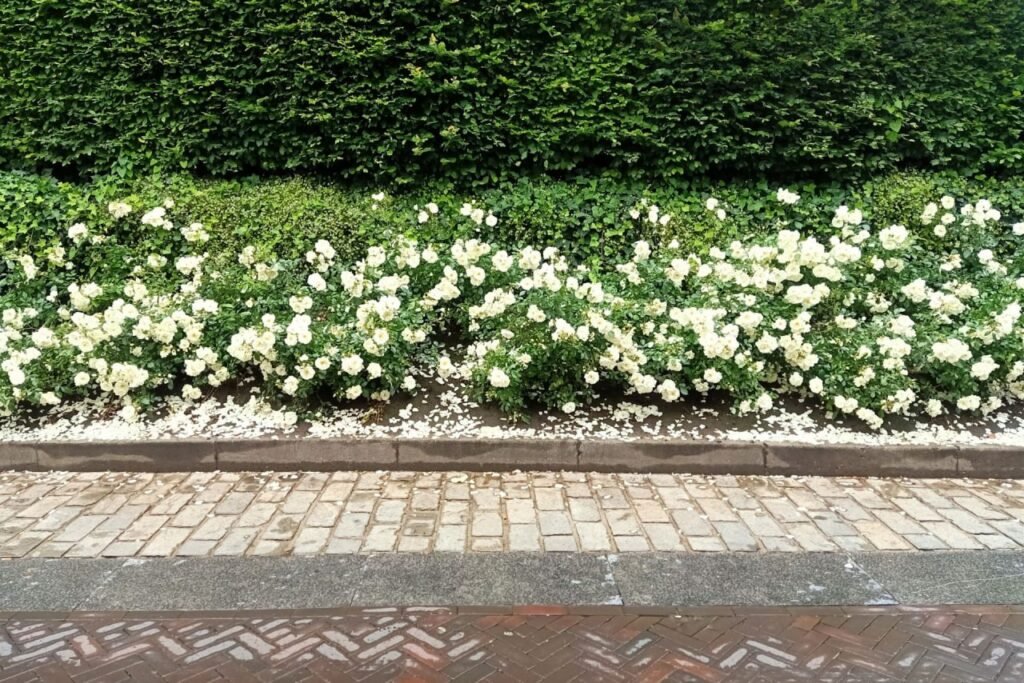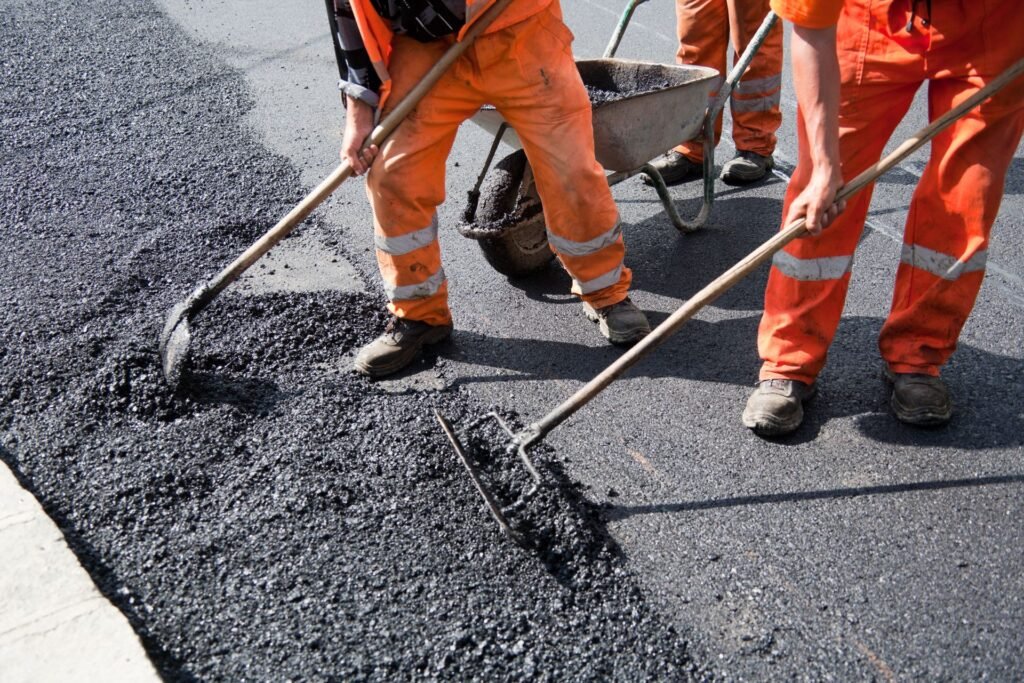Welcome to our comprehensive guide on concrete pad costs in New Zealand! Whether you’re planning to build a driveway, patio, or foundation for a garden shed, understanding the costs involved is crucial for budgeting and planning your project. In this post, we’ll walk you through everything you need to know, from the average cost per square metre and the factors that affect pricing, to tips on saving money and whether you should consider DIY or hire a professional. By the end of this guide, you’ll have a clear understanding of what to expect when installing a concrete pad in NZ and how to make the most of your investment.
The average cost of a concrete pad in New Zealand typically ranges from NZD $75 to $100 per square metre. Factors like the size of the pad, thickness of the concrete, type of concrete used, labour, and site preparation all influence the final price. For a small patio or garage foundation, costs can range between NZD $1,500 to $2,000, while larger projects like driveways can cost upwards of NZD $5,000.
Table of Contents
What Is A Concrete Pad And Why Do You Need One
What is a Concrete Pad?
A concrete pad is a flat, solid surface created by pouring concrete into a designated area and allowing it to harden. These pads are commonly used in both residential and commercial settings due to their strength and durability. You’ll find concrete pads in a variety of applications, including driveways, garage floors, patios, and as foundations for sheds or other outdoor structures. They provide a stable, level surface that can support heavy loads, making them an ideal choice for high-traffic areas or places that require a solid foundation.
Benefits of Using a Concrete Pad
Concrete pads offer several benefits that make them a popular choice for various construction and landscaping projects.
- Durability: Concrete is one of the most durable building materials available. Once installed, a concrete pad can last for decades with minimal wear and tear, even in harsh conditions. This makes it an excellent choice for areas exposed to heavy loads, like driveways or garages, where vehicles are regularly parked.
- Strength: A well-poured concrete pad is incredibly strong. It can handle significant weight without cracking or shifting, making it ideal for supporting structures like sheds or decks. Its strength also means that it can withstand extreme weather conditions and still maintain its integrity.
- Versatility: Concrete pads can be customized to fit a wide range of projects. Whether you’re creating a patio, a foundation for a garden shed, or a sturdy walkway, concrete can be shaped, stamped, or even colored to suit your design preferences.
- Low Maintenance: Once installed, concrete pads require little upkeep. They don’t need to be sealed or treated regularly, and they resist staining and weathering better than many other materials. Simple cleaning and occasional repairs for minor cracks are usually all that’s needed to keep a concrete pad looking good and performing well for years.
Why Concrete Pads Are Popular in New Zealand
In New Zealand, concrete pads are a particularly smart choice for outdoor projects due to the country’s varied climate. With weather patterns that range from heavy rainfall to strong winds, having a solid, weather-resistant foundation is essential. Concrete’s natural resistance to moisture makes it less prone to erosion or damage from the elements, which is especially important in regions with wet conditions. Additionally, concrete pads provide excellent thermal properties, meaning they can help stabilize temperature fluctuations, which is useful in areas with changing climates.
Concrete pads are a practical, long-lasting solution for a variety of construction and landscaping needs. They offer unmatched durability, strength, and versatility, and are especially suitable for outdoor projects in climates like New Zealand’s. Whether you’re building a new driveway, setting up a patio, or laying the foundation for a shed, a concrete pad provides a reliable and low-maintenance option.

Key Factors That Affect The Cost Of A Concrete Pad In NZ
When planning a concrete pad project in New Zealand, it’s important to understand the various factors that can influence the final cost. Whether you’re looking to build a patio, driveway, or another structure, the cost of the concrete pad will vary depending on several key factors. In this guide, we’ll break down these factors to help you get a clearer picture of what to expect in terms of pricing.
Size of the Concrete Pad
The size of your concrete pad plays a major role in determining the overall cost. Simply put, the larger the pad, the more concrete and materials will be required, which will naturally increase the cost. For example, a small patio might measure around 3×3 meters, whereas a driveway could be 6×10 meters or larger. The amount of concrete needed, plus the associated labour, will grow significantly with bigger projects. For instance, a patio may require a smaller volume of concrete than a driveway, but the cost per square meter tends to be consistent across various sizes. The larger the pad, the more resources both in terms of materials and labour will be needed.
Thickness of the Pad
The thickness of the concrete pad is another crucial cost factor. Typically, standard concrete pads for patios or pathways are around 100mm thick. However, if you’re installing a driveway or any other structure that needs to support heavier loads, you may require a thicker pad, often around 150mm or more. The increased thickness means more concrete is needed, which will result in a higher price. For example, a residential driveway designed to support vehicles may need a 150mm pad, which can handle the extra weight, whereas a garden path may only need a 100mm pad. Thicker pads also require more intensive preparation and reinforcement, adding to the overall cost.
Type of Concrete
The type of concrete you choose has a significant impact on the price. Standard concrete is generally the most affordable option, but if you’re looking for more durability or aesthetic appeal, you might consider other types such as reinforced concrete, decorative concrete, or coloured options. Reinforced concrete, which includes steel rebar or mesh, is ideal for areas that need extra strength, such as driveways or heavy-use areas. On the decorative side, coloured concrete, exposed aggregate, or polished finishes can add a stylish touch to patios or outdoor entertaining spaces but will come at a higher cost. Each type of concrete has its own pricing structure, and choosing the right one for your needs will depend on your budget and the function of the pad.
Labour Costs
Labour costs can vary significantly depending on your location in New Zealand. On average, you can expect to pay between $60 to $100 per square meter for concrete labour, but this varies by region. In larger cities like Auckland, where demand for skilled tradespeople is high, labour costs may be on the upper end of that scale. Meanwhile, in smaller cities or rural areas, such as Wellington or Christchurch, labour might be slightly more affordable. It’s also essential to hire experienced contractors, as poorly installed concrete can lead to cracks and other issues that will cost more to fix in the long run. Therefore, while labour is a significant part of the overall cost, investing in skilled professionals can save you money on future repairs.
Site Preparation
Before pouring concrete, the site must be properly prepared, and the amount of preparation needed can greatly affect the cost. Site preparation might involve levelling the ground, excavation, or dealing with poor soil conditions. If the site is sloped, uneven, or has difficult soil, it may require extra work, including additional excavation or filling, to ensure a stable base for the concrete. The type of soil on your property can also influence costs areas with soft or clay-heavy soil may require more groundwork compared to more solid or well-drained soils. These factors are important to consider, as proper site preparation ensures the durability and longevity of your concrete pad.
Additional Costs
While the concrete pad itself is a significant investment, there are additional costs to consider that can enhance the durability and appearance of your project. These optional features may include reinforcement, such as rebar or mesh, which is especially important for driveways or any surface that will bear heavy loads. Other additions, like drainage systems, are crucial for preventing water buildup, which could lead to cracks or erosion over time. Decorative finishes, like stamped patterns or polished surfaces, are another way to customize your concrete pad, although these features will raise the overall price. It’s important to discuss these options with your contractor to ensure you’re getting the best value for your needs and budget.
Location
Where you are located in New Zealand can also impact the cost of a concrete pad. Urban areas typically have easier access to materials and labour, while rural areas may incur additional transportation fees for getting concrete to the site. If you’re based in a more remote location, the costs can increase due to the distance materials and labourers have to travel. Furthermore, regional price differences in concrete, labour, and preparation can vary, so it’s worth getting quotes from contractors who understand the specific conditions in your area.
The average cost of installing a concrete pad in New Zealand is influenced by several factors, including the size and thickness of the pad, the type of concrete used, and labour costs. Site preparation and location also play a significant role in determining the overall price. By understanding these key factors, you can better plan your budget and make informed decisions when selecting materials and contractors for your concrete project. Whether you’re building a simple patio or a durable driveway, getting the right balance of quality and affordability is essential for a successful project.

Average Cost Of A Concrete Pad In NZ (2024 Estimates)
When planning a project that requires a concrete pad in New Zealand, understanding the associated costs is crucial for budgeting and decision-making. Several factors, including the size, thickness, and type of concrete, can influence the overall expense. In this guide, we’ll break down the average cost per square metre, provide example costs for common pad sizes, and explain what’s typically included in the price.
Cost Per Square Meter
The average cost of a concrete pad in New Zealand is influenced by several key factors, including the thickness of the concrete, the type of mix used, and the complexity of the project. In 2024, the typical range for a standard concrete pad is between NZD $75–$100 per square metre. Here’s a breakdown of how different variables can affect this cost.
- Thickness: A standard concrete pad is usually about 100mm thick. Thicker slabs, such as those required for heavy-duty areas (e.g., driveways or garage foundations), will cost more due to the increased material and labour.
- Type of Concrete: Basic concrete mixes are on the lower end of the pricing scale, but if you’re looking for special types, such as reinforced or decorative concrete (e.g., exposed aggregate or stamped designs), the price can increase substantially.
- Location and Accessibility: The cost may also vary depending on the ease of access to your site, as difficult-to-reach areas may require more labour and specialized
The average cost per square metre for a concrete pad in New Zealand ranges from NZD $75 to $100, but this can vary based on the specifics of your project.
Example Costs for Common Pad Sizes
Below are some example costs for different-sized concrete pads based on the 2024 estimates. These examples assume a standard 100mm thick concrete slab with no additional features.
- Small Patio (10m²): A small outdoor patio of about 10 square metres might cost between $750 and $1,000, depending on factors like site preparation and ease of access.
- Garage or Shed Pad (20m²): A larger area, such as a concrete pad for a garage or shed, measuring 20 square metres, is estimated to cost between $1,500 and $2,000.
- Driveway (50m²): For a driveway, which typically spans 50 square metres, the cost can range from $3,750 to $5,000, depending on the thickness of the slab and whether any decorative finishes or reinforcement are required.
These figures provide a rough guide, but specific costs will depend on your location, the contractor you hire, and any additional features or complexities of the project.
Breakdown of What’s Included
When budgeting for a concrete pad, it’s important to understand what is typically included in the price and what might be considered an extra. Most quotes for concrete pad installation in New Zealand include.
- Materials: This covers the cost of the concrete mix, reinforcement (such as steel mesh or rebar, if required), and any basic formwork materials.
- Labour: Labour costs usually include site preparation, pouring, and finishing the concrete. For standard slabs, this also covers levelling and smoothing the surface.
- Site Preparation: This can involve excavation, removal of existing materials (such as grass or old concrete), levelling the ground, and setting up the formwork.
However, some elements may incur additional charges, depending on your specific project.
- Decorative Finishes: If you’re looking for a more aesthetic finish, such as exposed aggregate, stamped patterns, or coloured concrete, expect to pay extra. These finishes require more time, skill, and specialized materials.
- Reinforcement: For projects that require extra reinforcement, such as heavy vehicle driveways or garage floors, the cost may increase due to the additional materials and labour involved.
- Permits and Consents: Depending on your local council’s regulations, you may need to factor in the cost of permits or consents, which can vary based on the scale and location of the project.
In 2024, the average cost of a concrete pad in New Zealand can vary significantly depending on several factors such as size, type, and thickness of the slab, as well as any additional requirements like decorative finishes or reinforcement. A standard concrete pad generally ranges from NZD $75–$100 per square metre, with total costs for common projects ranging from $750 for small patios to $5,000 for larger driveways. Be sure to discuss with your contractor what is included in your quote to avoid unexpected extras and ensure your project stays within budget. By understanding these key factors, you can better plan your concrete project and make informed decisions about the materials and services you need.

DIY Vs. Hiring A Professional – Which Option Is Right for You
When planning a home improvement project, especially one involving concrete work like laying a foundation pad or driveway, the big question often comes down to this: Should you tackle the project yourself or hire a professional? There are pros and cons to both approaches, and the right choice depends on your budget, skills, and the complexity of the project. Let’s dive into the details.
Pros of DIY Concrete Projects
One of the biggest advantages of taking on a DIY project is the potential cost savings. By eliminating labor costs, which can be a significant portion of any project’s budget, you can save money upfront. If you’re a hands-on person who enjoys learning new skills and getting things done, there’s also a sense of accomplishment in completing a project by yourself. You have full control over the process, allowing you to work on your own schedule without waiting on a contractor’s availability.
Additionally, DIY projects give you complete control over every aspect of the job, from choosing materials to setting the timeline. If you’re someone who likes to oversee every detail and make adjustments along the way, the DIY route can provide that flexibility.
Cons of DIY Concrete Projects
However, DIY concrete work comes with its fair share of challenges. First and foremost, working with concrete is not as simple as it might seem. It requires specific skills and knowledge to ensure the mix is right, the site is prepared correctly, and the concrete is laid smoothly. Without experience, there’s a higher risk of making mistakes that could lead to costly repairs down the line. For instance, an uneven or improperly prepared pad can crack over time, leading to expensive fixes.
Moreover, concrete work demands the right tools, many of which are specialized and may not be readily available in your average toolbox. Renting or purchasing these tools adds to the project’s cost and complexity. Time is also a factor. What may seem like a weekend job can turn into a long-term project if unexpected challenges arise, causing delays and frustration.
Benefits of Hiring a Professional
Hiring a professional contractor takes much of the stress and guesswork out of the equation. Experienced concrete contractors bring the expertise needed to get the job done efficiently and correctly the first time. They have access to the right tools and equipment, ensuring that the concrete pad or structure is installed properly and will stand the test of time. A professional can also ensure the surface is level, durable, and meets all necessary building codes.
In terms of time, hiring a pro can significantly speed up the process. What might take a DIY enthusiast several weekends to complete could be finished in a fraction of the time by a skilled team. Plus, a professional contractor will often offer a guarantee or warranty, giving you peace of mind that any issues down the road will be addressed without additional cost.
How to Choose the Right Contractor
If you’ve decided that hiring a professional is the best route for your project, the next step is finding a reliable contractor. In New Zealand, there are a few key steps to ensure you’re hiring the right person for the job.
- Check Reviews and References: Start by researching online reviews or asking friends and neighbors for recommendations. A good reputation is often a strong indicator of quality work.
- Get Multiple Quotes: Don’t settle for the first contractor you find. Reach out to at least three different contractors to compare prices and get a better understanding of what the project will entail. This also helps in gauging their professionalism and ability to communicate effectively.
- Verify Certifications and Insurance: Make sure the contractor you choose is properly licensed and insured. This not only ensures they have the necessary skills but also protects you from liability in case of accidents or damages.
- Ask for a Detailed Contract: Once you’ve chosen a contractor, ask for a written contract that outlines the scope of work, materials to be used, estimated timeline, and total cost. This ensures that both parties are clear on expectations, minimizing the chances of miscommunication or unexpected costs.
Whether you choose to go the DIY route or hire a professional depends largely on your confidence, skills, and the complexity of the project. DIY projects offer the allure of cost savings and personal satisfaction but come with risks that could lead to higher long-term costs if mistakes are made. On the other hand, hiring a professional ensures expertise, efficiency, and a higher likelihood of a successful, long-lasting result. By carefully considering these factors and doing your homework before selecting a contractor, you can make the best decision for your concrete project, ensuring it’s completed on time, within budget, and to a high standard.

Money-Saving Tips When Installing A Concrete Pad
Installing a concrete pad can be a significant investment, but there are several smart strategies you can use to cut costs without sacrificing quality. Here are five practical tips to help you save money when installing a concrete pad for your home or business.
Opt for a Standard Finish
One of the simplest ways to reduce costs on your concrete project is by choosing a standard, plain finish rather than decorative or stamped options. While decorative finishes like stained or textured concrete can enhance the aesthetics of your space, they can significantly increase the overall price due to the additional labor and materials involved. A smooth, basic concrete surface is functional and durable and will meet your needs while helping you stay within your budget. Plus, you can always add decorative elements like outdoor furniture or planters to enhance the space later.
Reduce Site Preparation Costs
Site preparation can often be one of the more expensive parts of a concrete installation project, but there are ways to reduce these costs. If you’re willing to put in a bit of elbow grease, you can save money by handling basic prep work yourself. For instance, clearing the area of debris, rocks, or old landscaping, as well as removing any obstacles that might get in the way of the concrete pour, can significantly cut down on labor costs. Consult with your contractor about what tasks you can safely handle to lower your expenses without affecting the project’s outcome.
Combine Projects
If you have multiple concrete projects on your to-do list like a patio, driveway, or walkway consider bundling them into a single project. Combining multiple areas into one larger job can lead to substantial savings. When contractors pour concrete in larger volumes or tackle several areas at once, they often need fewer materials and can minimize the time and effort needed for preparation and installation. This not only lowers the overall cost but also streamlines the construction process, meaning less disruption to your property over time.
Shop Around for Materials
When it comes to sourcing concrete and any additional materials for your project, it pays to shop around. Don’t settle for the first supplier you come across. Instead, request quotes from several suppliers in your area and compare prices. Be sure to ask about delivery fees, as these can vary and impact your final cost. Additionally, inquire about bulk discounts, especially if you’re purchasing large amounts of concrete. Finding a reputable supplier at a competitive price can significantly lower your material costs without compromising the quality of the concrete used in your project.
Seasonal Discounts
Timing can play a big role in how much you pay for a concrete installation. Like many industries, concrete contractors experience peak and off-peak seasons. During the warmer months spring and summer demand for concrete services tends to rise, leading to higher prices and limited availability. However, during the off-peak season, especially in the winter, many contractors may offer discounted rates to keep their crews busy. If your project’s timing is flexible, scheduling your concrete installation during the colder months could result in significant savings. Be sure to check with local contractors to see if they offer seasonal promotions or discounts during the quieter times of the year.
By following these money-saving tips, you can reduce the cost of installing a concrete pad while still getting a high-quality result. From opting for a standard finish to taking advantage of seasonal discounts, there are plenty of ways to stay within your budget without cutting corners on your project’s durability or functionality.

FAQs: About Concrete Pad Cost NZ
What is a concrete pad, and what are its common uses?
A concrete pad is a flat, solid surface made from poured concrete that is commonly used in outdoor spaces. It’s versatile and can be used for a variety of purposes such as driveways, patios, garden shed foundations, and garage floors. The durability and low maintenance of concrete pads make them popular for both residential and commercial projects in New Zealand.
How much does a concrete pad cost per square metre in NZ?
The cost of a concrete pad in New Zealand typically ranges from NZD $75 to $100 per square metre. However, this estimate can vary depending on several factors, such as the thickness of the pad, type of concrete, and whether you choose decorative finishes. The final price will also be influenced by site preparation and labour costs.
What factors influence the cost of a concrete pad in NZ?
Several factors affect the cost of a concrete pad in New Zealand, including the size of the pad, as larger areas generally cost more. The thickness of the concrete also plays a role, with thicker slabs being required for driveways compared to thinner ones for patios. The type of concrete used, whether standard, reinforced, or decorative, can significantly influence the price as well. Labour costs can vary by region, and site preparation tasks, such as levelling and excavation, may add to the overall expense. Optional add-ons, like reinforcement or decorative finishes, will also increase the total cost of the project.
Is it cheaper to DIY a concrete pad or hire a professional?
DIY can save you money on labour costs, but it also requires a significant amount of skill, tools, and time. Mistakes during installation can lead to additional expenses, such as repairing uneven surfaces or cracks. Hiring a professional ensures the job is done correctly and efficiently, but it will cost more upfront due to labour fees. For complex or large projects, hiring a contractor is often the safer and more reliable choice.
What is the average cost for installing a standard-sized concrete pad?
The average cost of installing a standard-sized concrete pad (around 20m²) for a small garage or shed foundation is typically between NZD $1,500 to $2,000. This includes basic materials, labour, and site preparation. Larger projects like driveways or patios (50m² or more) can cost upwards of $3,750 to $5,000 depending on other factors like reinforcement and finishes.
How long does it take to install a concrete pad?
The installation process for a concrete pad usually takes 1 to 3 days, depending on the size of the project and site conditions. Small pads (e.g., for patios) can be completed in a day, while larger pads (e.g., driveways) may take longer due to the additional steps like reinforcement and curing. Once the concrete is poured, it typically takes about 24 to 48 hours to set and 28 days to fully cure.
Can I customize the appearance of a concrete pad?
Yes, concrete pads can be customized with decorative finishes such as exposed aggregate, stamped patterns, or coloured concrete. While these options can significantly enhance the visual appeal of your pad, they will also increase the overall cost. Decorative finishes are ideal for patios and walkways where aesthetics are a priority.
How long does a concrete pad last?
A well-installed concrete pad can last 20 to 30 years or more with minimal maintenance. Factors like the quality of the concrete, the thickness of the pad, and environmental conditions will affect its lifespan. Regular cleaning, sealing, and protecting it from heavy impacts can extend its durability even further.
What maintenance is required for a concrete pad?
Concrete pads require minimal maintenance, but to keep them in good condition, it’s recommended to clean the surface regularly to prevent staining. Applying a sealer every few years can help protect the pad from water, chemicals, and UV damage. It’s also important to avoid placing heavy or sharp objects on the surface, as they could cause cracks or damage. Additionally, any minor cracks should be repaired promptly to prevent them from worsening over time.
Are there any additional costs to consider when installing a concrete pad?
Yes, beyond the basic materials and labour, there may be additional costs to consider when installing a concrete pad. These can include site preparation tasks such as excavation and levelling, which may be necessary depending on the condition of the area. Reinforcement materials like steel mesh or rebar may be required to ensure the pad’s durability, especially for larger or load-bearing surfaces. Drainage solutions could also be needed, particularly for larger pads or driveways, to prevent water accumulation. If aesthetics are important, opting for decorative finishes like coloured or stamped concrete will add to the total cost. Additionally, permits or council approval may be necessary for large-scale projects, which could incur extra fees.
Conclusion
Investing in a concrete pad can be a wise, long-term decision for homeowners due to its durability, low maintenance, and versatility in various applications, from patios and shed foundations to driveways and outdoor workspaces. Despite initial costs, concrete’s resilience against weather, heavy loads, and wear often proves more cost-effective than other materials over time, enhancing both functionality and property value. The adaptability of concrete allows for a range of finishes, textures, and colors to fit diverse design visions, making it a practical and aesthetically pleasing choice. Consulting local professionals for personalized advice and quotes ensures a properly installed, high-quality pad that maximizes lifespan and performance, which can help ease any concerns over budget. For anyone contemplating a concrete pad, considering project goals, budget, and the long-term benefits is crucial, and professional guidance can solidify this decision, turning it into a rewarding home improvement investment. Feel free to share any experiences or questions about concrete pads in the comments, and pass along this information to others considering similar projects.
About the Author:
Mike Veail is a recognized digital marketing expert with over 6 years of experience in helping tradespeople and small businesses thrive online. A former quantity surveyor, Mike combines deep industry knowledge with hands-on expertise in SEO and Google Ads. His marketing strategies are tailored to the specific needs of the trades sector, helping businesses increase visibility and generate more leads through proven, ethical methods.
Mike has successfully partnered with numerous companies, establishing a track record of delivering measurable results. His work has been featured across various platforms that showcase his expertise in lead generation and online marketing for the trades sector.
Learn more about Mike's experience and services at https://theleadguy.online or follow him on social media:











